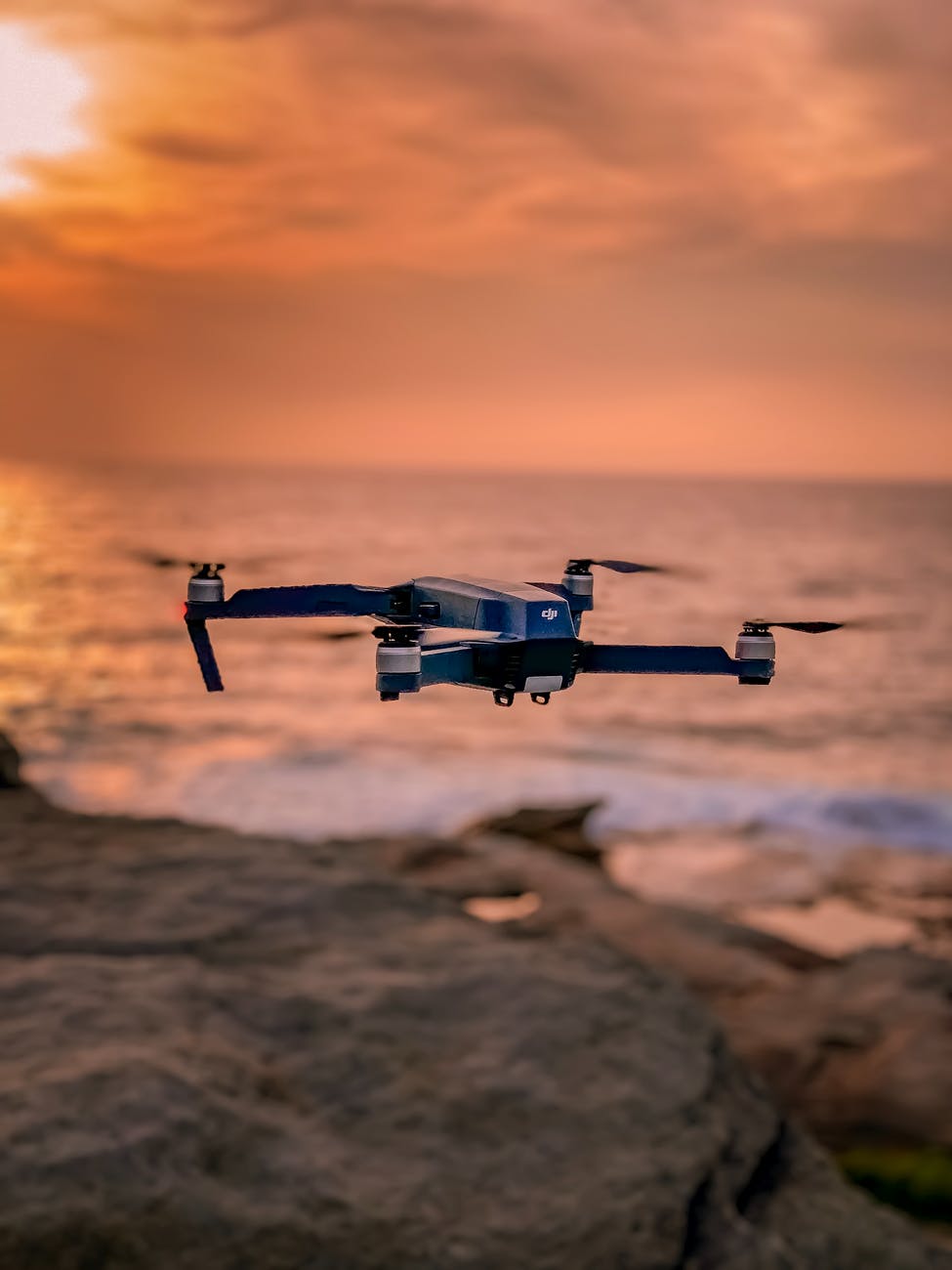Do I need to register my drone?
Generally, yes. Drones flown for purely recreational purposes must be registered if they weigh over .55lbs on takeoff. All drones flown for commercial purposes must be registered. Drones can be registered easily online at the FAA DroneZone website. Registration costs $5.00 and is valid for a period of (3) years, upon which it must be renewed. Once you register your drone, you will receive a Registration Certificate that you must have on your person whenever flying the drone. You must also legibly mark your drone with its given registration number before flying.
Do I need a license to fly my drone?
Only commercial operators need a license to fly their drone. This license is known as a Remote Pilot Certificate or “Part 107” Certificate. The licensing process is as follows:
- Meet the FAA eligibility requirements.
- Create an Integrated Airman Certification and Rating Application profile and register for the UAG Knowledge Test ($160.00 testing fee; 60 multiple choice exam; need a 70% or above to pass).
- Upon successful completion of the UAG Knowledge Test, fill out FAA Form 8710-13 for a Remote Pilot Certificate.
- Complete the TSA background check (could take up to (2) months).
- Receive first a temporary and then a permanent Remote Pilot Certificate.
- Fly your drone!
What is the difference between a Commercial and Recreational Operator?
Recreational drone use is simply flying for fun or personal enjoyment. Commercial drone use is anything beyond that and is not limited to operations that receive financial compensation. So, for instance, non-recreational purposes would include operating the drone to film a wedding or using the drone to take pictures of your house so that you can sell your house online. Even volunteering to use your drone to take pictures of a high school football game for a school website would be considered commercial. In short, if you are using your drone to do anything more than fly around and have fun, that is considered a commercial use.
It is important to know the difference between recreational and commercial use because the FAA regulates these uses in different ways. For example, commercial drones have the added testing and licensing requirements, as well as more flight regulations under 14 C.F.R. 107.
What are the restrictions on flying my drone?
14 C.F.R. 107 provides a number of regulations restricting uses of both commercial and recreational drones. These restrictions include:
- Keep your drone in your physical line-of-sight.
- Yield to all manned aircraft.
- Fly at or below 400 feet in controlled airspace.
- Do not operate in a dangerous manner (interfere with local EMS or law enforcement or operate the drone under the influence of drugs or alcohol).
- Do not operate over other human beings.
- Do not operate from a moving vehicle.
- Restrictions on nighttime operation.
You can find the full list of flight restrictions at www.ecfr.gov under Title 14, Chapter 1, Subchapter F, Part 107. It is important to note that operation of a drone in violation of these rules could lead to an FAA enforcement action which could result in hefty fines and/or loss of your flight privileges.
Beyond, federal regulations, your state or locality may also regulate drone usage. For instance, Tennessee currently has six drone provisions to consider. House Bill 153 forbids drone use to capture footage above open-air events and fireworks displays. Senate Bill 177 makes it a Class C misdemeanor for any private entity to use a drone to conduct video surveillance of someone who is hunting or fishing without their consent. And Senate Bill 2106 makes it illegal to operate a drone within 250 feet of a critical infrastructure facility in order to surveil or gather information about said facility. As a drone operator, it is important to keep abreast of state laws and regulations as well as federal regulations.
Recreational users can download the B4UFLY app to determine whether there are any restrictions or requirements in effect where you want to fly.
New developments
The FAA began regulating Small Unmanned Aircraft Systems in 2016. As more and more people around the country have begun to license drones, the regulations have been ever changing, so it is important to keep up to date on current regulations and licensing/registration requirements. For instance, beginning September 16, 2023, all drone pilots required to register their drone must have their aircraft equipped with Remote ID, which will provide federal officials with information about drones in flight, such as the identity, location, and altitude of the drone and its control station or take-off location. By September 16, 2022, all drone manufacturers will be required to manufacture their aircrafts with Remote ID already built-in for safety and security purposes.
If you have any legal questions about drone use or licensing and registration, or want to know more about your legal rights, contact Collins Legal today.
Read More
→ BLOG: The Legal Dangers of Posting on Craigslist
→ BLOG: Eminent Domain in Tennessee: the Good, the Bad, and the Ugly

